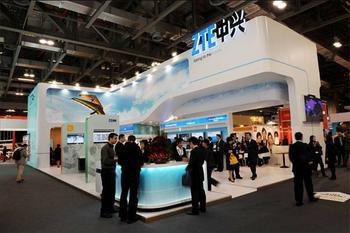No-encapsulated type NTC Temperature Sensor with the properties of sensitiveness, fast response, high temperature resistance, good appearance and protection has been used into oven, air conditioner, induction cooker, refrigerator and so on. Temperature range is from -30°C to 250°C.
No-Encapsulated Sensor,Oven Temperature Sensor,Air-Conditioner Sensor,Refrigerator Sensor Feyvan Electronics Technology Co., Ltd. , http://www.fv-cable-assembly.com On March 25, Beijing time, Zhongxing Communications was established in the 1980s. In the mid-1990s, it obtained the first overseas contract in Bangladesh. Since then, ZTE has actively expanded overseas and challenged Ericsson and Alcatel-Lucent in emerging markets including Asia and Africa.
On March 25, Beijing time, Zhongxing Communications was established in the 1980s. In the mid-1990s, it obtained the first overseas contract in Bangladesh. Since then, ZTE has actively expanded overseas and challenged Ericsson and Alcatel-Lucent in emerging markets including Asia and Africa.
Over the years, ZTE has sacrificed profits, invested and invested overseas, and pursued market share, eventually making the company the fifth largest telecommunications equipment supplier. Now that ZTE has returned to its roots in China, it has focused on getting 4G orders from its domestic mobile operators China Telecom, China Unicom and China Mobile. ZTE spokesman Zhai Sheng said: "The Chinese market is like a gold mine because Chinese operators have plenty of cash. China is our top concern."
China Mobile has 715 million subscribers. This year its spending will reach 190.2 billion yuan, of which 41.7 billion yuan will be used to build 200,000 4G base stations and cover 100 cities. Later this year, China is expected to issue 4G licenses. China Unicom stated on March 21 that once it obtains a license, it will spend 5-10 billion yuan each year for 4G construction. China Telecom has not yet announced 4G investment plans.
ZTE’s profit warnings last year, and the first annual loss in 2012, analysts pointed out that it will obtain most of the contracts with rival Huawei. China’s National Development Bank has already loaned US$20 billion to ZTE, which is mainly used for intergovernmental assistance projects in emerging markets.
JI Asia analyst Neil Juggins pointed out: "ZTE will get contracts from everywhere, but I expect China will increase its profit margin and improve profitability."
According to data from 10 analysts surveyed by Reuters, ZTE expects net profit of 2.37 billion yuan this year. In 2012, ZTE forecasted a net loss of 2.67 billion yuan. This is the first annual loss since the listing of ZTE in Shenzhen in 1997 and its listing in Hong Kong in 2004.
Since January 2012, ZTE’s market value has fallen by nearly half, and it will announce its 2012 results on Wednesday.
Mistakes
In the past 10 years, ZTE and Ericsson, Huawei, Alcatel, Nokia Siemens competed for the share. ZTE’s pricing is very low, and some opponents even give up their competition. IDC New Delhi analyst Gaurav Jain said when talking about the telecommunications market in India: "ZTE's pricing is very cheap and all new business bids are losing money." ZTE spokesman Dai Wei said: "In the past few years, in countries such as India, we have In some contracts, it is no longer the lowest bidder. Given the current global economic environment, telecom operators want to reduce costs and the prices of telecom equipment industry are showing a downward trend."
ZTE said that its net loss in 2012 was mainly due to delays in some overseas contracts and low profit contracts in Africa and South America.
The reiteration of management’s remarks was also one of the reasons why investors were daunted by ZTE’s shares. After ZTE issued a profit warning in the first nine months of 2012, senior executives told analysts in October that they would make profits in 2012, but a few months later, ZTE warned that it would lose money throughout the year.
A Chinese fund manager said: “We hold a small amount of ZTE shares but we did not buy more because we were misled by the company.â€
Some telecom industry executives have also questioned whether it is known whether the huge capital expenditure announced by telecom operators will be fulfilled this year because the global economic downturn is suppressing spending.
Chris Ye, a telecommunications analyst at Mirae Asset Management, pointed out: “In the first half of the year, my attitude was conservative because we have to observe the announcement of China’s telecom operators’ capital expenditure this year and whether the expenditure will follow up this year. â€